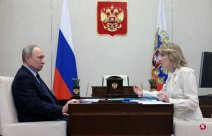(Washington Composite Electric) According to a US survey, although market transactions seem to show that the financial crisis is coming, behind the recent financial turmoil and spreading concerns, most investors see that the US economy is still strong.
Silicon Valley banks, including three US banks, have closed down, and emergency assistance to other banks including Credit Suisse, First Communist Party, and Banks, have caused market panic to spread, and the stock market and bond yields have fallen sharply.Investors 'expectations of the US Federal Reserve will quickly cool down, and the drop -off contract even reflects investors' expectations for the Fed will cut interest rates within a few months, and the warning of economic recession is increasing.
However, according to Bloomberg Mliv Pulse surveys 519 investors, including professional institutions and retail investors from March 13th to 17th, most interviewees believe that the US economy will avoid hard landing.About two -thirds of the interviewees predict that the US economy is either softening or landing, or is growing, or it will not land.In addition, most interviewees tend to believe that the Fed will continue to raise interest rates to make inflation closer to the target level.
The results of this survey show that investors' views on possible economic results do not match the direction of market transactions. This is because the market transaction direction is driven by market momentum and concerns about the "snowball" of the banking crisis.
PGIM's fixed income department joint chief investor Peter said: "The issue of the risk of infection in the banking industry is actually the spread of unreasonable fear."
In addition, the Mliv Pulse survey shows that investors are still confident in the Fed.More than 60%of retail investors and professional investors believe that the Fed has not lost its reputation.
The Fed will announce interest rate resolutions on Thursday (23).Investors believe that the Fed's decision this week will be between suspending interest rate hikes (due to concerns about financial stability) and 25 basis points (to continue to curb inflation).
The professor of finance at Stanford University said: "The Fed will still tighten the policy for a long time to lower the inflation. The most likely path of the Federal Reserve is to suspend interest rate hikes, perhaps just wait for the next meeting, and then resume the instructions of inflation data to restore the instructions of inflation data.Interest rate. "
For the Federal Reserve, the major impact of financial turmoil in the past week of more than a week of financial turmoil is a risk, not expected results, or even possible results.It is a fact that continued high inflation. The decision makers have been struggling with high inflation for a year, but so far they have made little progress.Therefore, even if the Federal Reserve chose to suspend interest rate hikes this week, it may be a "eagle" suspension. This suspension will stabilize the market, but it will increase the risk of further interest rate hikes in the future.
Charles Reed, an economist at the University of Cambridge University, said in an interview with Xinhua News Agency that the important reason for the failure of Silicon Valley Bank is the rapid rise in interest rates.The rise in interest rates has caused tremendous pressure on the global financial market, which is not only the dilemma faced by the Silicon Valley Bank.He pointed out that decision makers are now trying to solve the problem of high inflation through monetary policy, but ignore the impact of this financial stability.
He said that the current systemic risks facing the US economy are mainly the impact of rapid interest rate rising.Many banks have not announced their losses in bond investment portfolios, and the impact of high interest rates on the financial system has not yet fully appeared.In the next few weeks or months, banks in the United States and other places are expected to encounter more turbulence.



